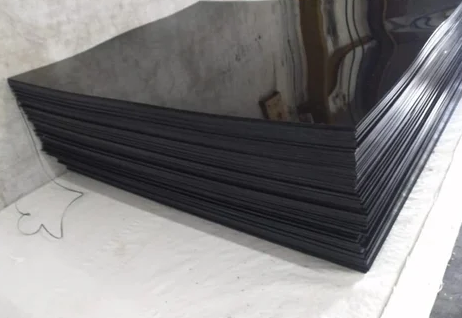Exploring Stated Income Commercial Loans: A Pathway to Financial Freedom

Navigating the world of commercial loan financing can be a daunting task, especially for small business owners, real estate investors, and self-employed individuals. Traditional loans often come with a myriad of documentation requirements and lengthy approval processes that can hinder your ability to seize opportunities when they arise. Fortunately, stated-income commercial loans offer a flexible alternative that simplifies the borrowing process and empowers individuals to invest in their futures. This comprehensive guide will explore the ins and outs of stated-income commercial loans, their benefits, the application process, and real-world success stories.
What Are Stated Income Commercial Loans?
Stated income commercial loans are specialized financing options that allow borrowers to declare their income without the extensive documentation typically required by conventional lenders. This form of loan is particularly advantageous for those whose income may be difficult to verify through traditional means, such as freelancers, commission-based earners, or real estate investors who rely on rental income.
Key Features
Minimal Documentation: Unlike traditional loans, stated income loans require significantly less paperwork, streamlining the application process.
Flexibility in Income Reporting: Borrowers can state their income based on what they believe is accurate, accommodating various income sources.
Faster Approval: The simplified process often leads to quicker approvals, allowing borrowers to act on opportunities without delay.
How Stated Income Loans Work
When applying for a stated income commercial loan, borrowers provide basic information, such as the desired loan amount, property details, and their stated income. Lenders typically conduct a credit check and may require an appraisal of the property but do not delve into the same level of financial documentation as traditional loans.
Benefits of Stated Income Commercial Loans
Stated income commercial loans offer numerous advantages that can greatly benefit borrowers looking to finance commercial real estate.
1. Less Documentation
One of the most appealing aspects of stated income loans is the significantly reduced paperwork involved. Traditional commercial loans can require tax returns, bank statements, and extensive proof of income, which can be overwhelming. Stated income loans typically only need a few key documents, simplifying the process and making it more accessible.
2. Flexible Income Verification
Stated income loans are designed to accommodate a variety of income sources, making them particularly beneficial for self-employed individuals and entrepreneurs. Whether your income comes from freelance work, rental properties, or commissions, you can state your earnings without being confined to conventional verification methods.
3. Faster Funding
Timing is everything in the cutthroat real estate market of today. The rapid approval process associated with stated income loans means you can secure funding quickly, allowing you to capitalize on opportunities before they disappear.
4. Investment Flexibility
For real estate investors, stated income loans provide a pathway to acquire properties that generate income. Whether you’re looking to purchase a multi-family building or refinance an existing asset, these loans can help you access the capital needed to grow your investment portfolio.
Eligibility Criteria for Stated Income Commercial Loans
While stated income loans are more accessible than traditional loans, there are still certain eligibility criteria that borrowers must meet. Lenders take into account the following important factors:
1. Credit Score
The majority of lenders will run a credit check as part of the authorization procedure. While the requirements can be less stringent than traditional loans, a decent credit score is still essential for obtaining favorable terms.
2. Property Type
The type of property you’re looking to finance can impact your eligibility. Lenders typically prefer properties that are easy to evaluate and have a history of generating income, such as rental properties or commercial buildings.
3. Stated Income
Borrowers must provide a reasonable estimate of their income. While this doesn’t require extensive documentation, lenders will assess the plausibility of the stated income in relation to the property and market conditions.
4. Down Payment
Many lenders require a down payment for stated income loans. The percentage can vary based on the property type, borrower’s creditworthiness, and lender policies.
5. Experience in the Field
For real estate investors, having a proven track record can significantly enhance eligibility. Lenders often prefer borrowers with experience managing properties or a solid business background.
The Application Process for Stated Income Commercial Loans
Applying for a stated income commercial loan is a straightforward process that can be completed in several steps.
Step 1: Gather Basic Information
Before applying, gather the necessary details, including:
Desired loan amount
Property information (address, type, and value)
Your stated income
Step 2: Choose a Lender
Selecting the right lender is crucial. Look for lenders specializing in stated-income loans with a solid reputation for transparency and customer service.
Step 3: Complete the Application
Fill out the loan application with the gathered information. You’ll typically need to state your income without providing extensive documentation.
Step 4: Await Approval
Once submitted, your application will be reviewed. Due to the simplified nature of stated income loans, approvals often come within a few days.
Step 5: Close the Loan
Upon approval, you’ll review and sign the loan documents, allowing you to access the funds for your commercial property purchase or investment.
Common Misconceptions About Stated Income Commercial Loans
Stated income commercial loans often come with misconceptions that can deter potential borrowers. Let’s address some common myths.
Myth 1: “They Are Only for People with Bad Credit”
Many people believe that stated income loans are a last resort for those with poor credit. In reality, these loans cater to borrowers who have valid income sources but may lack traditional documentation. Borrowers with good credit can also benefit from stated income loans.
Myth 2: “You Don’t Have to Prove Anything”
While stated income loans require less documentation, it does not mean borrowers can fabricate their income. Lenders will still perform due diligence, including credit checks and property appraisals, to assess risk.
Myth 3: “They Come with High-Interest Rates”
Interest rates for stated income loans can vary, but they are not inherently higher than traditional loans. Rates are based on individual risk factors, including credit scores and property types.
Comparing Stated Income Loans with Other Loan Types
When considering financing options, it’s essential to compare stated income loans with traditional commercial loans and alternative financing options.
Traditional Commercial Loans
Documentation: Require extensive documentation and proof of income.
Approval Time: It often takes weeks to months for approval.
Interest Rates: Generally have lower rates but stricter qualifying criteria.
Stated Income Commercial Loans
Documentation: Minimal documentation required; relies on the borrower’s stated income.
Approval Time: Typically faster approval, often within days.
Interest Rates: Can be competitive, depending on the borrower’s profile.
Alternative Financing Options
Hard Money Loans: Short-term loans are based on property value rather than the borrower’s creditworthiness. These frequently have higher interest rates attached.
SBA Loans: Government-backed loans that provide favorable terms but require more documentation and longer approval times.
Important Considerations Before Applying for a Stated Income Loan
Before pursuing a stated income commercial loan, consider the following crucial factors:
1. Assessing Your Financial Situation
Review your current financial standing, including income, expenses, and any existing debts. Understanding your financial health will help you determine the amount you can comfortably borrow.
2. Understanding Interest Rates and Fees
Varying fees and interest rates may be offered by different lenders. Compare multiple lenders to find the best deal and clarify any hidden costs associated with the loan.
3. Potential Risks Associated with Stated Income Loans
While stated income loans offer flexibility, they can also carry risks. Borrowers should be cautious about overstating income, as this can lead to repayment challenges and potential default.
Real-Life Case Studies
Case Study 1: Real Estate Investor
Situation: Mark, a real estate investor, was looking to purchase a multi-family property to expand his rental portfolio. However, his income fluctuated significantly due to seasonal rental income and occasional flips.
Solution: Mark applied for a stated income commercial loan, declaring his projected annual income based on his rental properties. The lender approved his loan within days, allowing him to secure the property quickly. As a result, Mark expanded his rental income significantly and enhanced his overall investment strategy.
Case Study 2: Small Business Owner
Situation: Emily owned a successful graphic design firm and needed to purchase a commercial space for her growing business. However, her income varied monthly, making traditional loan approval challenging.
Solution: Emily opted for a stated income commercial loan, where she could state her average income based on her previous years’ earnings. She received approval swiftly, purchased the property, and expanded her operations, ultimately increasing her client base and revenue.
Frequently Asked Questions (FAQs)
1. What is the difference between stated income and traditional commercial loans?
Stated income loans require less documentation, allowing borrowers to state their income without extensive proof, while traditional loans require detailed income verification.
2. Who can qualify for a stated income commercial loan?
Typically, real estate investors, small business owners, and self-employed individuals can qualify, as these loans accommodate a variety of income sources.
3. What documents do I need to apply?
Generally, you will need basic information such as the desired loan amount, property details, and your stated income. Specific requirements may vary by lender.
4. Can I refinance my existing loan with a stated income loan?
Yes, stated income loans can be used to refinance existing loans, especially if you want to access equity or secure better terms.
5. How can I find a lender for a stated income commercial loan?
Research lenders who specialize in stated income loans. Compare rates, terms, and reviews to find the right fit for your needs.
Contact Us
If you’re considering a stated income commercial loan and need expert guidance, Commercial Lending USA is here to help. Our experienced team understands the unique needs of borrowers and can assist you throughout the process.
Contact us today for a consultation:
Website: commerciallendingusa.com
Phone: (855) 365-9200
Email: sales@commerciallendingusa.com
Conclusion
Stated income commercial loans present a valuable opportunity for individuals looking to finance commercial properties without the burdens of traditional loan requirements. Knowing the ins and outs of these loans as well as the application procedure will help you make well-informed selections that support your financial objectives. Whether you’re a seasoned investor or a small business owner, stated income loans may provide the flexibility and speed you need to seize opportunities in today’s dynamic market.
Explore your options with Commercial Lending USA and take the next step toward achieving your financial aspirations.




